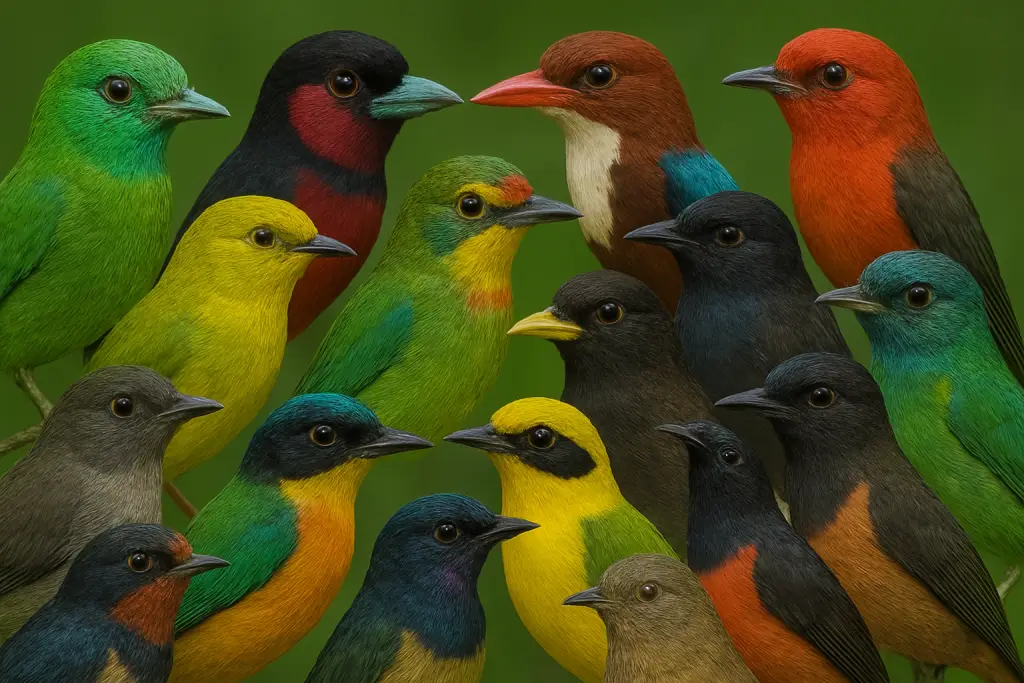Every day of the week before dawn has even announced its intentions, a haze spreads through the streets and alleys in cities, towns, and villages across the country. Countless…
Hey, wait a minute, Chat. That’s how you started the last post. I told you to be unique. What gives?
Oh. Hey, bro, good catch. I thought you meant unique in context and since the context has not yet revealed itself, once the reader gets to see it as a whole, it’ll all be good. But…
But, nothing. You don’t have a clue about context. Never mind. Try again. Jesus, I might as well just go back to writing these by myself.
<sniff> Okay.
Thailand, for the vast majority of its residents, is ruled by circadian clocks first set in deep time. These biological rhythms were cast in DNA when the skies and waters cleared enough to admit the shimmering light of our closest star; a time when being a mouth-breathing, bottom-feeder was the top rung in the social ladder. A time when the Earth spun so quickly that your time-traveled, Timex would be losing an hour-per-day. Or more.
And then the asteroid hit wiping out a large percentage of Life on Earth leaving bugs, avian dinosaurs – AKA: Birds, and the wily Tree Shrew – our distant ancestor. Those hardy survivors went on to form the incredibly diverse, widespread, and, unfortunately, soon-to-be-extinct life forms with which we, for now, share the planet. This global diversification, we learned much later, was guided by the law of evolution in which, as Charles Darwin so succinctly put it: only the fittest survive. Not the strongest, not the smartest, not the best looking – although that helps. The fittest.
Of course, fittest is open for interpretation, but for the purposes of evolution boils down to one thing: living long enough to pass your genes – AKA: DNA – on to your offspring and for them to survive long enough to do the same. That’s it. Full stop. Nothing else matters, at least from evolution’s point of view. If you have a trait – like steely-blue eyes – that improves your chances of reproducing, then evolution keeps it and even starts tweaking it to see if it can work better. If you have a trait that reduces your chance of reproducing, then your lineage dies out.
As always, there’s a third option. What if a particular trait that one of your ancestors developed neither improved nor diminished your chances of reproduction? What if evolution looked at it and said “Meh. Not worth the effort”?
Well, if you’re a human you’d get tonsils, appendixes (appendices?), late life cancer, cardiovascular disease, cognitive decline, dementia, ummm…what was I thinking? Oh, yeah…, E.D., and a whole host of other traits that either 1) don’t prevent us from surviving long enough to reproduce, or 2) kill us off at an age where our children have reproduced and all we’d be doing is stealing resources from our grandchildren. Amirite, Gen-Z?
By which circuitous route returns us to the main topic of this post.
There is one resident of Thailand which, by dint of the absence of evolutionary pressure, is still running its circadian clock on Cretaceous Standard Time. This despite the gradual lengthening of the Earth day and the relentless evolutionary pressure that was sufficient to turn tree shrews into humans. In fact, the unchanging circadian clock possessed by this resident was so unimpressed by evolution that it 1) either helped its night life immensely and never changed or, 2) didn’t get in the way of its reproductive success, at all. In any event, this resident has since spread from one end of Thailand to the other. From isolated trees in the densest cityscape through the suburbs and out into the countryside and deep into the wildlands, this resident has proliferated to an extent that is beyond belief and, perhaps, begging for some serious population control efforts.
I am, of course talking about the Asian Koel: the voice of dawn.
Well, dawn as it was on the day the asteroid struck.
Hours before the charcoal fires get cooking, before the insomniac vegetarians start bitching about breathing in the smoke from grilling chicken feet, and well before the diesel trucks rumble to life to start their chilly rounds, the Asian Koel awaken in their millions and start talking.
Right outside your bedroom window.
In one of those random cruelties of evolution, and to its great reproductive benefit, the Koel has developed a call that can penetrate the deepest forests, and most modern construction materials, as if they weren’t there. A single Koel sitting in a tree across town might as well be in your closet for all the volume modulation that doesn’t occur across the distance. The Koel (or Koyal, as it’s sometimes written) was actually named for its call – a two-note whistle, low then high, that can liquify the marrow in your bones at close range. No second name option was proposed. Ko-el, ko-el, ko-el, they cry from the wee dark hours until sunset. Every freaking day of the year. If you are a late sleeper, forget it. High-rise condominium, forget it. Anything you can think of, forget it. Those piercing cries will deflate your dreams and leave you grumbling for coffee.
Ironically, despite their sonic prevalence, they are almost impossible to glimpse in the wild. I have been standing directly beneath a sparsely fronded palm tree with a Koel clearly in residence and was unable to see it until it hopped from that tree to the one next to it. Where it promptly disappeared. This act which took less than a second. In life it is a stunning bird. The males, which is what I saw, are slightly smaller than a crow and plumaged in a rich blue-black. The females and young are (alledgedly) clad in a light-brown/dark-brown camouflage that is perfect for cover in a sun-dappled jungle or out for a night on the town. Plus, they have bright red eyes.
That one sighting, some years ago now, was my only close encounter with this bashful bird. Even after more than a decade, I still haven’t seen the one that sounds like it’s living in the closet. This species is the definition of wary.
One of the tropes of the tropics in general, and Thailand more specifically, is that they seduce a person into a certain state of indolence that, once it sets its claws in you, is intractable. In Thailand this state is the default social ethos and goes by the name ไม่เป็นไร or mai-bpen-rai. Mai-bpen-rai covers the bases from “no problem”, to “you’re welcome”, to “forget it”, to “Jesus, what an asshole” with equal ease.
“Thank you for the extra mango.”
“Mai-bpen-rai”
“Can you come over and fix the door?”
“Mai-bpen-rai”
“You said you were going to come over and fix the door two months ago.”
“Mai-bpen-rai”
“You operated on the wrong leg!”
“Mai-bpen-rai”
This attitude is so pervasive and infectious that more than half the people who set foot in the country are immediately infected and lost down the rabbit-hole <Note: check for a locally appropriate burrowing mammal> that is Southeast Asia.
The early western, usually British because the weather sucked at home, ornithologists that stumbled off the ship and into the jungle were not immune. They, known to the locals as ฝรั่งขี้นก or farang-khee-nok – look it up, wandered through the countryside overwhelmed by the sheer number of different birds, the friendly people, and the ubiquitous availability of adult libations, and basically just gave up.
“What the hell is that bird? I haven’t been able to spot a single one.”
“Sounds like it’s saying ‘ko-el’.”
“Right. Asian Koel it is. Hand me another Singha and a bucket of ice.”
“Mai-bpen-rai”
Consider the Greater Coucal, a close relative of the Koel, except easily seen but with the same red eyes.
“Looks like a crow.”
“No, it doesn’t. That’s clearly a pheasant. You’re drunk.”
“You’re drunk. But Crow-Pheasant it is!”
“Hand me another Singha and a bucket of ice.”
“Mai-bpen-rai”
And so it went. The Swan Goose. The Peacock-Pheasant. The Bamboo-Partridge and Rain Quail (don’t ask, I haven’t got a clue). The Zebra Dove, Frogmouth, Crab-Plover, Changeable Hawk-Eagle, Fish-Owl, Rhinoceros Hornbill, Magpie-Robin, and on and on the lazy-name list goes. Spreading through the Thai ornithological literature like a sweaty ice bucket soaking the tablecloth. Forget observational rigor. This is Thailand and anything goes. Like “Bangkok”, a name not commonly used in Thailand, none of those bird names are even close to what those animals are called in Thai. They’re just familiar-sounding names to make the rest of the world let their guard down and think they know how things work here. But they don’t.
Mai-bpen-rai.

